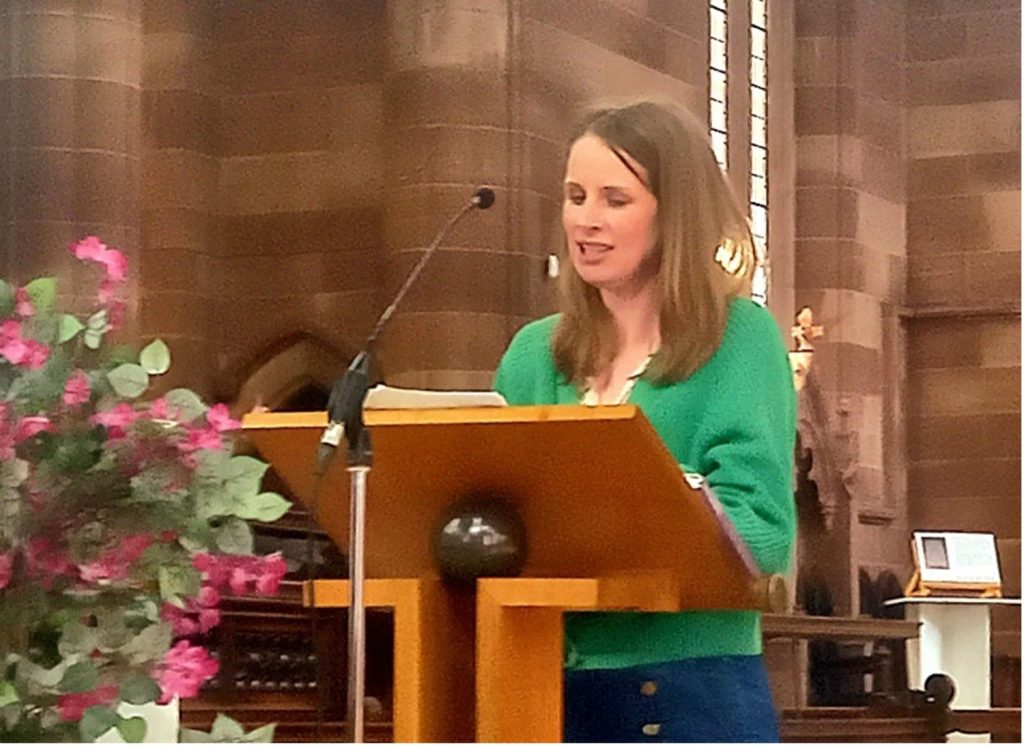What has HeartEdge got to offer to the Church in England
When I was preparing these short remarks, I was thinking about a theological reflection attached to a General Synod paper on clergy wellbeing a few years ago. It written by Margaret Whipp, a chaplain at the hospitals in Oxford, who had been a palliative care doctor. I’ve often wished that more attention might have been given to her words. She wrote: “A church . . . which faces decline in social influence and economic stability will be prey to potent collective anxieties; and clergy who uncritically embrace a strong sense of responsibility for the thriving of church communities can be prone to corrosive fears of personal, and vocational, failure.” In 2023, I was at a conference where the then Archbishop of Canterbury, Justin Welby, admitted that, although people told him not to think this way, he regarded the continued numerical decline of the Church as a personal failure. Anxiety goes right to the top.
In “A Future That is Bigger than the Past”, Sam writes of sensing the need to challenge “a widespread, almost universal, lament that the church had lost its hold on the imagination of the public at large, and that something vital, irreplaceable and glorious had been irretrievably lost, such that what lay ahead was its inevitable demise”. It’s something I can sense in the response to stories that I write at the Church Times. Concern about the fair distribution of limited resources. Worry about the loss of buildings, institutions, people. And then worrying about the worry – being told that the very anxiety you feel is itself wrong. As an anxious person myself, I can see that if I was in a leadership position, I would find it very hard not to feel concerned about the graphs sloping in a downward direction. I don’t want to chastise people who worry about the future of the institution.
Central to HeartEdge is the call to move away from a mindset of scarcity, defined as “fear of limited resources, influence, and relevance” to one of abundance. I’m sure other people here will immediately make the connection to the words of Jesus, who in his words on being the good shepherd said: “I came that they may have life and have it in abundance.” I think one of the challenges that HeartEdge offers to the Church is: what does an abundance of life look like?
Sometimes what I hear from readers is that that is a disconnect between the national Church’s picture of a church and the reality. That there isn’t a large pool of volunteers with plenty of time and energy, but a small number of older people full of love but simply unable to take on a multitude of tasks. That a lot of time is consumed by maintaining a much-loved building, drawing up rotas, or attending multiple PCCs. That the congregation isn’t in triple figures, but more like the average: 24 people at worship on a Sunday.

For many people here that might not be the picture that confronts you when you get back home. But I’m setting it out to illustrate what a shift in mindset this call to move from scarcity to abundance might look like.
HeartEdge is pleasingly practical and one of its gifts is the advice it offers on identifying the abundance around us. It is a means of bringing together ideas about what is possible for churches, from generating new income streams to the pros and cons of different models of charitable action. I think this is particularly true of its commerce stream – something the Church can sometimes view with suspicion.
The Church Times obituary for one of Sam’s predecessors as Vicar of St Martin’s, Geoffrey Brown, noted that, in the late 1980s he had saved St Martin’s from bankruptcy by opening up new revenue streams including a café. It compared this to an earlier Vicar, Dick Shepherd’s care of the homeless. We wrote: “Geoffrey’s accomplishment in ensuring that the doors of St Martin-in-the-Fields did not close can surely be seen as a historic achievement equal to his more illustrious predecessor’s decision to open them to all and sundry.”
But, for me, one of HeartEdge’s greatest gifts to the Church is the commitment of Sam and others to exploring the theology underpinning the practical advice. In a 2020 Theos report on social action, Growing Good, Hannah Rich identified the paradox facing the Church of England: “The national Church of a nation which is increasingly reliant on its social action and yet less and less spiritually connected to it.” This growth in social action had not been planned, she suggested, it was not a tactical attempt to soften the Church’s image. “Rather, it has come in response to economic and political contingencies. This means the social action of churches is often a factor of congregations just trying to deal with what is in front of them.”
In these circumstances, and with churches often hard-pressed for time and energy, it can be difficult to step back and to ask why we are doing what we are doing. Sometimes it can feel as if theology comes as an afterthought: We decide what we are going to do then later look for a theological justification for it. HeartEdge offers an invitation to turn our gaze away from our own action towards God and the gifts that he has given us/ It reminds me of the American theologian Fleming Rutledge’s advice on preaching: “we should always beware of sermons that sound as if God is standing back waiting for us before anything can be accomplished.” This isn’t an invitation to quietism but it is a reassuring reminder that we are invited to participate in a Kingdom that God is already establishing.
Sometimes programmes and books about Church renewal or social action, while intending to be inspiring, can be exhausting. What I take from HeartEdge is a message of reassurance – that we need not fear the future, which belongs to God. The gifts of renewal are available to all – not just churches with fully refurbished buildings, or healthy balance sheets, or a mass of able volunteers – not that we shouldn’t celebrate these things. The gifts include loving relationships, an ability to recognise gifts in those that others have overlooked, and a confidence in the one who will ultimately redeem everything. It is this hope that is the greatest gift we have to share with others.
On a recent visit to Wigan, I was taken to a church where a choir for people with dementia had been established. It wasn’t huge by any means, but the deacon in charge told me later that the song they had been singing was written by the guy behind the keyboard. That when invited to think about church renewal he had felt inspired by the Holy Spirit to write new songs. This is the sort of gift that won’t be captured in the statistical evaluation of what is happening in Wigan, but it was one of the most beautiful things I’ve seen in a church for a while. I felt God’s presence there.
I wanted to end on a passage that really stayed with me from Sam’s book:
“Hope is a settled disposition to anticipate that God will act in the future either to transform and fulfil the circumstances of the present by disclosing their true purpose and end, or at least to reveal in these same events a deeper truth of relationship and destiny than is currently recognizable. The answer to ‘Why is this happening to me?’ is not simply ‘There is no reason’ or ‘Everyone has their own cross to bear’, however appropriate the pastoral significance of such phrases may be; it is finally either ‘You will one day discover’, or ‘Because God is preparing to show you a truer face than you have ever seen before, and you may look back on this experience as the defining moment of your life.’ Hope looks to the future not as the bringer of death, the thief of meaning or the harbinger of danger, but as the promise of revelation: the fundamental theological statement about the future is that now we see in a glass darkly, but then we shall fully know, as we are fully known.”
What a valuable message for an anxious Church of England at this time in our long history.


